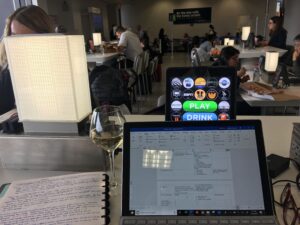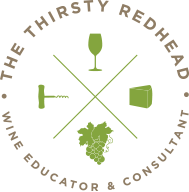One of the most significant changes I am making to my Master of Wine study plan is that instead of organizing the syllabus topics and using that as my roadmap, I have gone through past exam questions to figure out what I should be focused on. In the past, studying by syllabus topic has led me down the rabbit’s hole of more and more information, which is fascinating, but maybe not useful for my immediate goals.
The world of wine is ginormous and ever-changing, so looking more closely at how the body of knowledge for the exams is structured will help you evaluate your own study plan. Yes, the syllabus and the exams theoretically reflect the same body of knowledge, but the exams give you further clarity about what you should focus on in any given topic: the absolute must-know information you must master.
Great, but for Theory alone, there are about 27 essays to look at for each vintage (<— wine humor). And I think you should look back for at least ten years. That’s a lot of essays to consider, and there are only 340 days left until the next exam (theoretically). It’s a good thing you’re starting now, eh?
Enter unpacking the question
Before you dive in, you need to unpack the questions. This needs to be done with sufficient time and careful attention, as it will be your roadmap for the next year of your studies. Tim Wildman, MW has a brilliant video explaining this concept of unpacking the question.
Not only will unpacking the question help you find that elusive body of knowledge relevant to the Master of Wine exams, but it will also show you the relative significance of each topic. For example, in my past study schedule, I would have spent a whole week on topics like “rootstocks” and another week on “old vines.” There is a ton of information out there about each so I felt like I was accomplishing something and moving forward.
However, by unpacking the questions, I discovered that these two topics, while important and super fun, are not examined with high frequency. In the past, I have also spent a week on “wine brands” but that topic is examined nearly every year (sometimes more than once!)
So by unpacking the past essay questions, not you not only get a sense of what you should focus on in (within the topic of rootstocks), but you also see how you should be spending your time effectively. In this case, rootstocks and old vines have been folded into one topic called “The Vine” that also includes the annual lifecycle of the vine (so, the vegetative and reproductive cycles each year) and the physiology of the vine (I just feel fancy saying xylem and phloem). And that topic can be covered in one week, while wine brands will take closer to two weeks, and there are many ways to pick apart that topic.
How to unpack the question
First, you should watch Tim Wildman’s video. Next, I suggest that you take ten years’ worth of papers and carefully read each past essay question to identify the topic.
What are the most critical considerations for selecting rootstock when establishing a new vineyard?
Ok – the topic is rootstock. This essay is examining your knowledge and understanding of issues related to rootstocks. Now, what is the focus of this essay, as identifying the focus will allow you to use your time most effectively.
What are the most critical considerations for selecting rootstock when establishing a new vineyard?
How to select rootstocks, right? Not quite. I would say the focus here is on the critical considerations for selecting rootstocks. So instead of writing every consideration you can think of for selecting rootstocks (and there are many), you need to focus on the critical ones, the most important ones.
So get unpacking!
From this example, you can see that by unpacking past exam questions, I not only figured out how to allocate my time more effectively but also know where to focus my time when I do sit down to study rootstocks.
And, yes, the examiners do not always repeat questions so that the body of knowledge is finite. But as you get out there and talk to people about their rootstocks, you will discover the real-world headaches and controversies so that you are prepared for new ways of looking at rootstocks. You should be hitting the books for your base of knowledge, and then really understanding the wine world by talking to people across the industry to understand the practical realities.
Once again, I’m not a Master of Wine, so I can’t guarantee this is the best approach, but I hope this discussion was helpful to you when planning your own studies.


